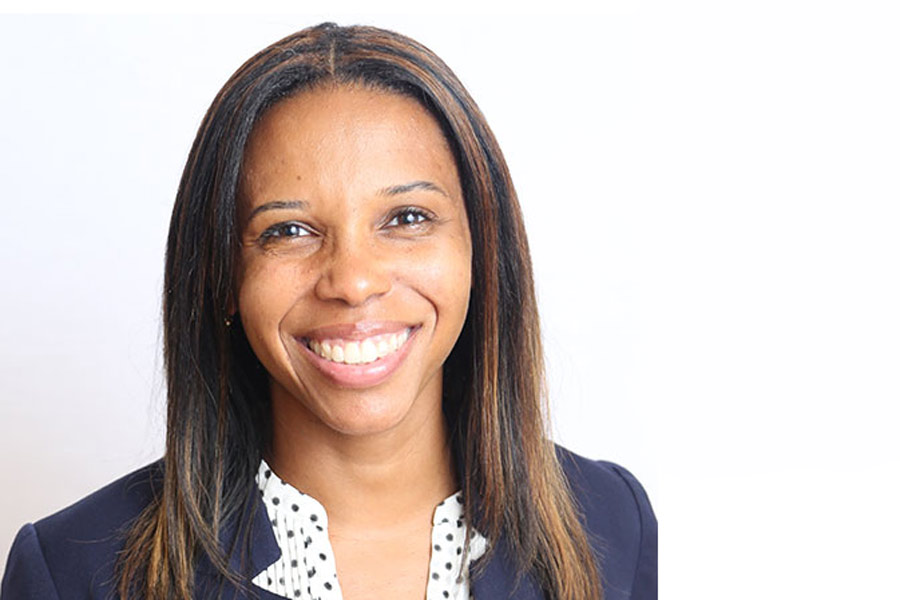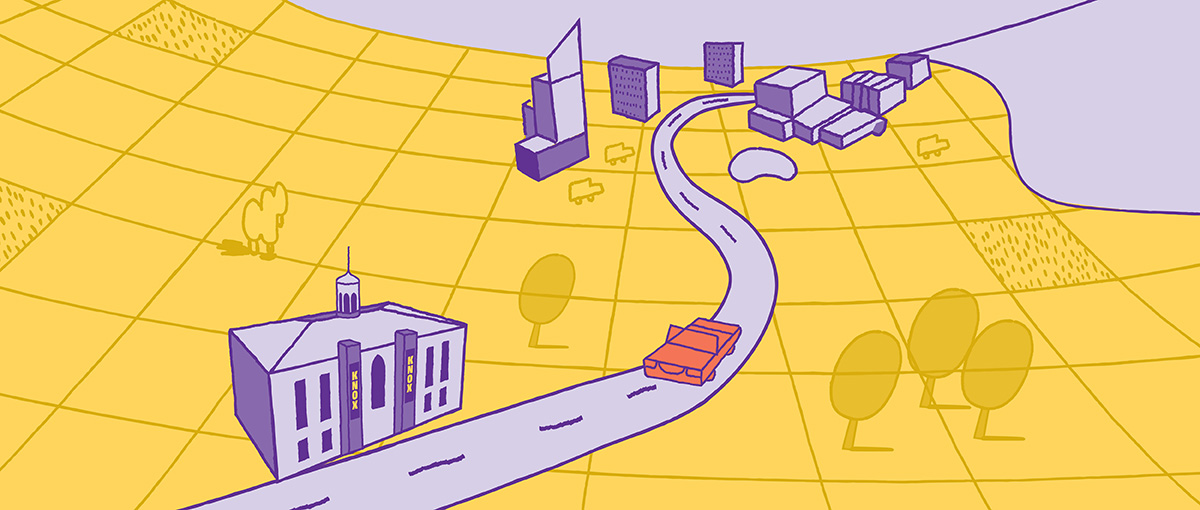

Quinnetta Miller '08
Senior Manager of Coaching at StriveTogether
Majors in English Literature and Secondary Education
In addition to her full-time job at StriveTogether, Quinnetta spends time supporting the Black Lives Matter movement in her hometown of Chicago, Illinois.
What is StriveTogether?
StriveTogether is a national nonprofit organization that supports community-based partnerships that are working on outcomes from cradle to career—so, starting with kindergarten readiness, third-grade reading, middle-grade math, high school graduation, and then we build out, recognizing that the pipeline doesn't stop after you graduate. It also includes career and career development skills. We have a partnership here in Chicago called Thrive Chicago that's working particularly in the post-secondary space, and really focusing their efforts on Black and Brown youth of color between the ages of 18 to 25, [that is] redirecting resources and thinking intentionally about how we support that subpopulation around post-secondary access to programming or career development. We have 70 partnerships across the U.S. And within those backbone organizations, all of them have their individual set of local partnerships that they're working with in collaboration and in coordination to really think intentionally about: How do you shift systems? How do you shift systems in a way that's equitable, that keeps race equity at the focus, and also keeps anti-racist practices at the forefront?
Was there a club or a class at Knox that you felt inspired by?
Yeah, I mean, definitely. My sophomore through junior year, I was involved in the Black student union, A.B.L.E.—Allied Blacks for Liberty and Equality—and actually was, at the time, a house monitor. I don't know if they still do that now, but I lived in the A.B.L.E. House and sat on the executive board. It really started my journey around the importance of having affinity spaces, having an affinity group to be around like-minded people in terms of just racial and ethnic identity. To have a core group of folks that you can support and lean into, but really explore issues of race and racism together and think about ways that you could do it collectively at the college level. That experience was really powerful because it gave me an opportunity to ground myself in the history of African American culture and literature, in music, in all those things, and we were really intentional about the programming that we did coming out of A.B.L.E. supporting our belief in sharing all of the wonderful contributions that African Americans have made to the larger national narrative that seem to sometimes get forgotten. It was an opportunity for me to ground myself in that really sacred history with other African Americans on campus.
And I took a Black Studies course with Dr. [Fred L.] Hord. That class completely rocked me to my foundation. I can't even explain it. There were several things that I felt like Dr. Hord answered for me. When I was a student here in Chicago as a high school student, I lived in the city, but I got a scholarship to go to a private high school. And one of the questions of my high school life was, why is it that, if you're white, and if you're wealthy, the educational opportunities and resources just seemed like they were limitless? I came from a community that was predominately African American, and it just seemed like opportunity was never there. And I never could understand. Is there something about me? Is this something about my racial group? You feel that tension, like, what's happening here? Dr. Hord's class helped me answer that question: to really understand the historical roots of racism in our country, and to really understand, not just the historical roots, but the implications of race and racism and how it shows up in all the implicit ways in which it still manifests itself in unequal distribution of access and opportunity. It was his class that really gave me the core understanding of why those things are.
Can you talk about your experiential learning project through the Ronald E. McNair Program?
I got accepted to the program, and the focus of my program, in terms of my research paper, was around educational inequality. … I took the work of Jonathan Kozol’s Savage Inequalities and did sort of an up-to-date: Where are these schools now? I had an opportunity to interview students from different schools, here in the city of Chicago and in some suburban areas, and really get a sense of the educational landscape. I graduated in 2008, so much has probably changed since then, but that experience really helped me understand that the things that we see right now are only at the top of the iceberg when it comes to racial inequality and disparities. Knox gave me the opportunity to really explore what are the other things that are underneath it. What are the structural components? What are the patterns of history, of policies, and mental models below the surface that explains the types of racial tensions and pressures at the surface level?
Do you have any advice for Knox students pursuing racial justice in this time?
I think the only message I would give Knox students is to really think about their level of activism. What I mean by that is, I think there's a culture of activism right now that feels very social-media-heavy. And, you have to excuse me, I am technically a millennial, but I'm on the latter end of millennials. I think Facebook literally had just come out when I was in college. So, for me, it's not the way you really truly show your commitment to racial justice and to equity and to anti-racist work. You have to do it in your day-to-day work: in your work as a student, in your work at your jobs, in your interactions with your friends, in your interactions with your family, and where you direct your resources, your talents, and your time. And let me say this: I think it's great, the pictures and the resounding voice I hear from young people on social media about fighting for justice. However, it's that and all those other things. Go to the meetings. It's about voting, it's about showing up for those conversations around policing and policing strategies. Show up for those conversations, show up to those meetings and voice how you think police should be interacting with communities. And not just show up—continue to hold them accountable and also be a part of the follow-up conversation, implementation, refinement that comes after that. So it's not just that one meeting, that one protest, it's all the follow-up things that come after it.

